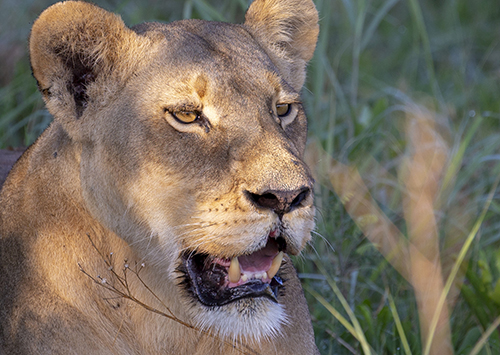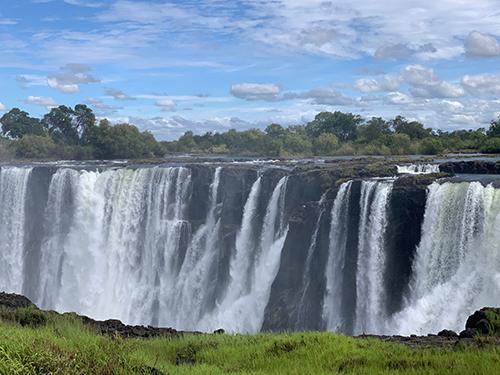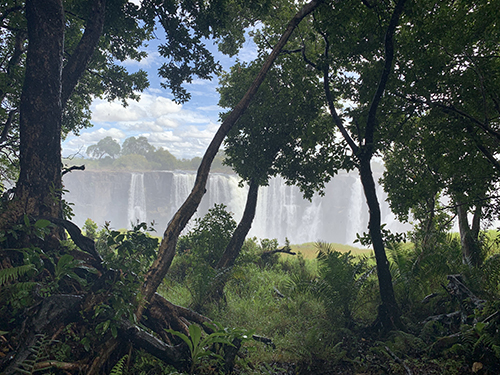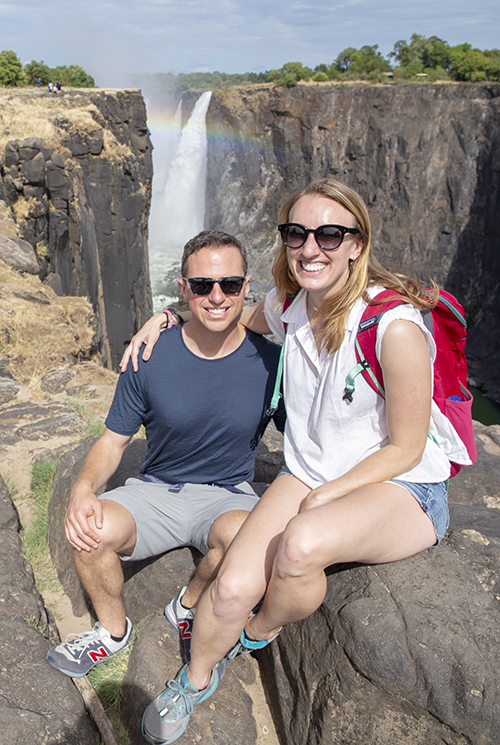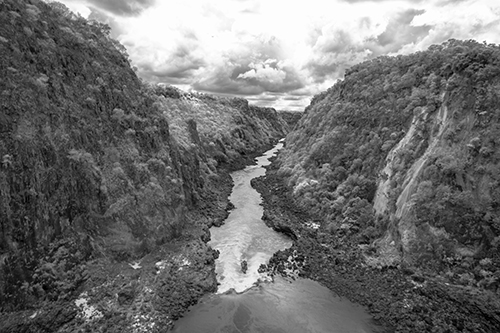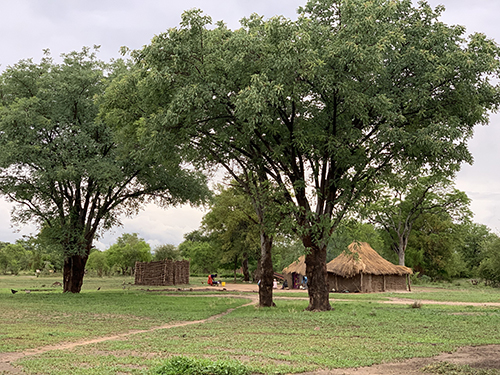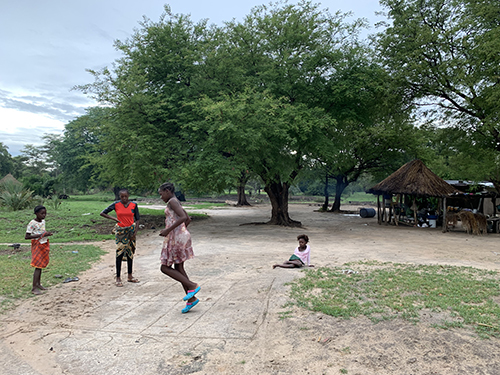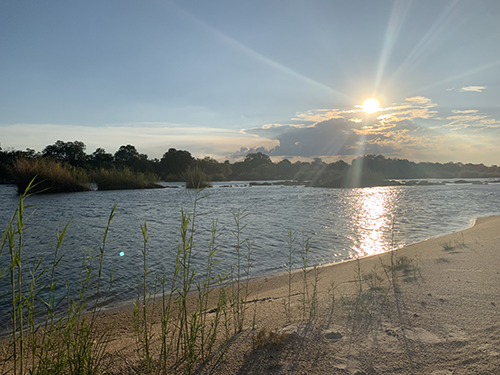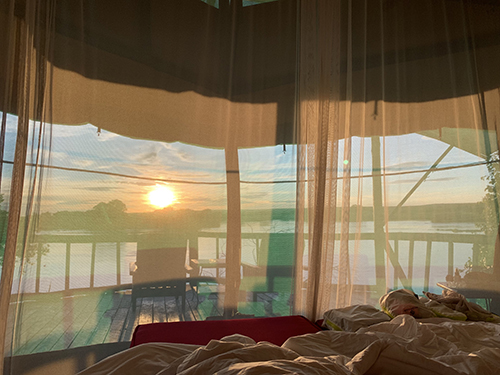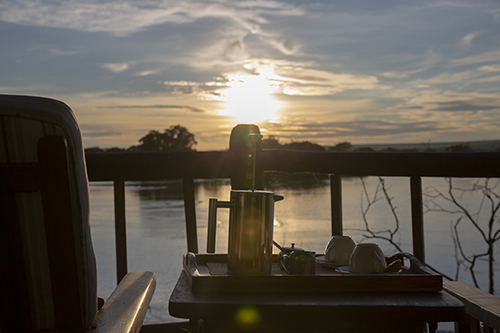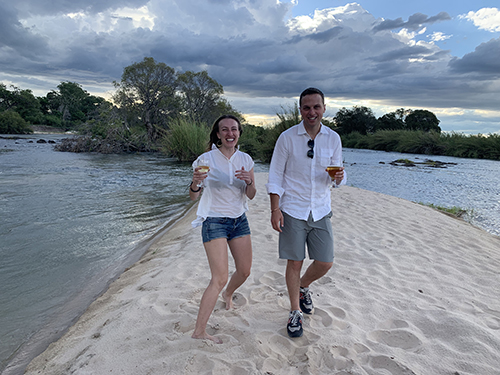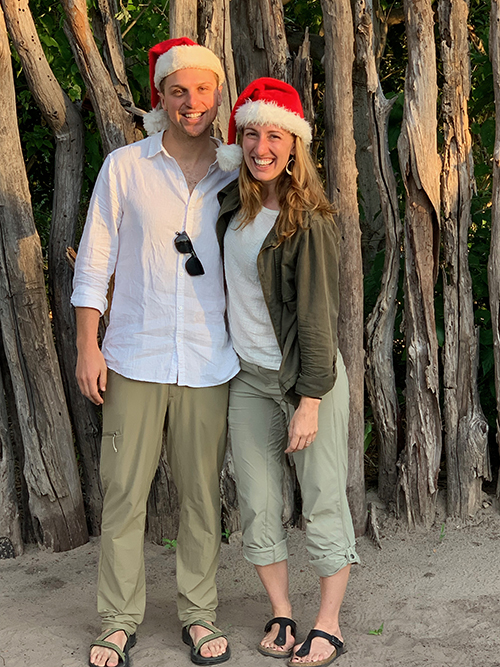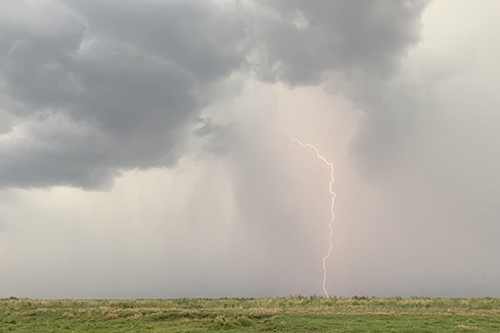There was a spotting last night of leopard tracks on the western bank of the Khwai river not far from where the hyena den sits. Definitely wasn’t a lion. Lions tracks are larger and almost always travel in groups – there was only tracks from one animal here. Wasn’t a cheetah either. They usually show off an indentation from their sharp claws. Same goes for hyenas and wild dogs. If there are no claw prints, wasn’t them. Thus, our mission if we choose to accept it is to track down the leopard. (Note: the only thing we’ll be shooting are photographs.)
First thing, the tracks are now stale, but luckily there was a light rain over night wiping clean our etch-a-sketch of earth. The temperature is still cool at 5:45am in the morning, and as we close in on the location of the tracks, we find fresh ones pointing due east in the direction of the rising sun.
We cut the engine and listen and wait and listen some more. Birds are just waking up, the wind rustles through the leaves, the hippo laughs at a corny joke just beside the river. Then we hear it, an alarm call. Many of the birds sound an alarm upon spotting a predator, but one that we’ve become attuned to is that of the Starling. We scan the branches looking for the culprit of the sound. We find the bird and strain our eyes to see where it’s looking.
We test the boundaries of the vehicle hoping not to get stuck and drive around looking in branches and under trees for the amazingly camouflaged feline. Although the truck sounds like thunder, we keep our voices to a whisper. Our heartbeats are louder than our words as we scan. We circle the patch of bushes once, twice, three times, and cut the engine again to listen. The alarm is gone and so is our leopard.
The magic of safari and the adrenaline that follows is that it’s not a zoo. There are no guarantees what we’ll see, when we’ll see, how we’ll see. The only certainty of the day is its uncertainty. And so we continue, and as we go, we rest to enjoy the hippos, impala, giraffes, zebras and elephants. And every so often, we hear what might be an alarm call, stop the car, listen, hunt, and repeat. And every time we do, I’ve got my camera locked and loaded waiting for the perfect moment.
After feeling so close for most of the morning, we finally catch our break. The alarming Starling looks deep into the brush, and we try to see what it’s seeing. I’d love to take credit, but our guide eyes a spotted tail. We drive around to see if we can get a better look, and eventually we do! There’s a blue-eyed leopard carefully watching us through the cloak of leaves all around.

And then, when we’re already satisfied, the leopard starts to move. It has spotted a baby impala not too far. It’s steps are so slow, so methodical, so quiet. We wait and don’t even whisper to each other not wanting to disrupt the moment. After much maneuvering by both parties, the impala comes within striking distance of the leopard. The leopard, also being too young, misses its opportunity, wagging its tail in disappointment. But what a moment. We’d have loved to see more action, but the suspense and beauty of the slow motion chase is still a thrill.
Whenever Lindsey or I sneeze, we’d also hint that our cat allergies were giving us another clue, but that one was much less reliable than the tracks and the birds. But whenever a real clue would show itself, we’d become detectives and enjoy every moment of the hunt. Each exotic find equally exciting. We got to see lions and cubs up close, we came across several leopards, and were even lucky to stumble upon the elusive serval cat.



